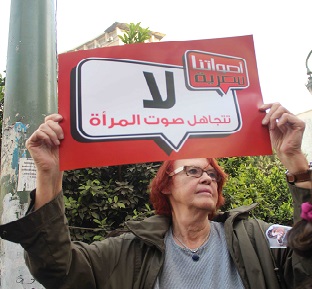ZURICH: Following their third conference in Zurich held from March 25-27, Coptic immigrants announced their plans to hold a fourth conference in Montréal, Canada on April 7, and another in Sydney, Australia, on May 12. Adli Abadir, leader of the Coptic immigrants, said during the Zurich conference that they intend to organize eight conferences around the world this year in order to put pressure on the Egypt and expose the persecution of Copts.
The Zurich conference, titled, The Copts are caught up between the Wahabi hammer and the Muslim Brotherhood anvil, was joined by American University in Cairo (AUC) professor Saad Eddin Ibrahim, about 40 Coptic immigrants and some Arab intellectuals, critical of Islamist attitudes, attended the conference.
Abadir, an influential Egyptian businessman in Switzerland, attacked the Egyptian government, accusing it of using Saudi money to turn Egypt toward fanatical Wahabi thinking.
The conference called upon the Egyptian government to activate a religious rights document that was signed last year in Cairo by Al-Azhar Grand Imam Sheikh Muhammad Sayed Tantawi and Emil Haddad, priest and representative of the Peace Ambassadors Organization. The document says using violence to confirm a religious viewpoint or forcing others to embrace a religious viewpoint is unacceptable.
Coptic immigrants, of whom there are approximately two million, are trying to unify their powers, in spite of the inner conflict took place following the Washington conference last year after Michael Monir, head of the U.S. Copts Association, visited Egypt and met with Egyptian officials.
The first Coptic conference established Coptic demands: instituting a total separation of religion and the state through constitutional reforms; the removal of an emphasis on religion and its role in government institutions; an emphasis on the secular nature of the state; denouncing the Hamayoni Decree as unconstitutional in order to establish the equal rights of all Egyptians to build and maintain places of worship and the allocation of a proportionate and just percentage (estimated between 10-15 percent) of government appointed positions to Copts to guarantee appropriate participation. These demands were sent to the Egyptian government, but the organization claims that the government has ignored their demands. During the second conference in Washington, they decided to appeal to the United Nations and Copts United submitted a complaint to the U.N. Committee on Social and Economic Rights prior to the third conference.
Awad Shafik, lawyer and representative for Copts United who submitted the complaint to the United Nations, said that the main objective of the complaint is for the observation committee resulting from the international treaty for human rights to study whether Egypt s internal law agrees with the treaty, and if it isn’t in agreement, then there should be international cooperation to assist the country to introduce suitable internal legislation.
He pointed out that the Copts have illustrated their complaint by pointing to some legislation that discriminates against Copts; for example the Hamayouni law that dates to Ottoman rule and obliges Copts to obtain a license from the president to build a new church.
For its part, the Coptic Church is trying to separate itself from the actions of emigrants. Pope Shenouda held a press conference in Aswan one week before the Zurich conference while inaugurating a new church and expressed his disapproval of emigrants resorting to the UN or any foreign interference in Egyptian affairs due to Copts.
Abadir commented on the Pope’s position, saying “The Pope is in a cage, he can’t say [anything] except that. We tried several times to solve the problem by dialogue but the government ignored us.
Coptic-Muslim Brotherhood dialogue was a major topic of discussion between Ibrahim and other participants. Ibrahim attempted to persuade them of the necessity of such a dialogue. He explained that Copts should not judge the Brotherhood before engaging them in a dialogue, adding the fear of political Islam is legitimate, but [it] does not prevent dialogue. If I was talking with the Israelis why can you not talk with the Brotherhood? Accepting dialogue means accepting the humanity of both sides.
I have hope and confidence that if the dialogue begins in an atmosphere of freedom, the Islamists in our region will become democrats, as was the case in Turkey with the Justice Party, he continued.
Abadir said the dialogue with the Brotherhood would be an argument, not a dialogue. We can t trust a group that considers deception a system. He pointed out that Coptic problems in Egypt have been a factor since 1972, with the Al-Oteifi committee s report following the Khanka sectarian incident. The report accused the government of seeking to avoid solutions to the problems.

